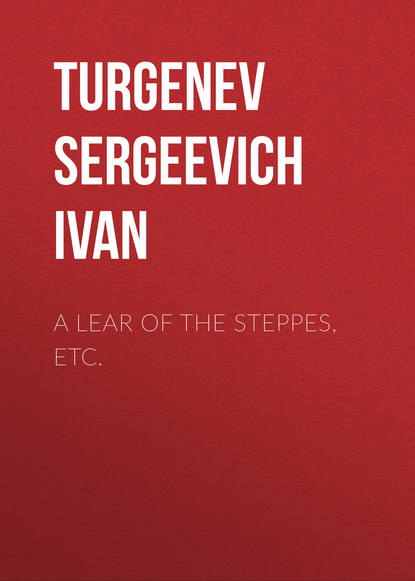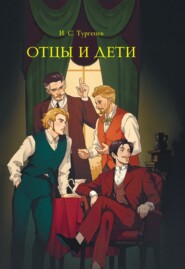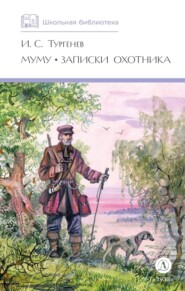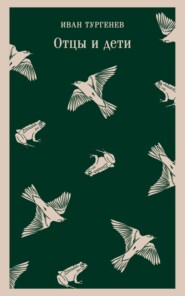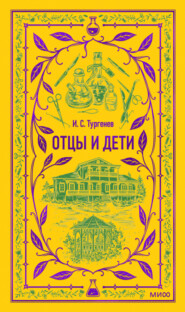По всем вопросам обращайтесь на: info@litportal.ru
(©) 2003-2025.
✖
A Lear of the Steppes, etc.
Настройки чтения
Размер шрифта
Высота строк
Поля
‘Will you come home with us?’ Gagin said to me; ‘I think we’ve stared enough at the Germans. Our fellows, to be sure, would have broken the windows, and smashed up the chairs, but these chaps are very sedate. What do you say, Acia, shall we go home?’
The girl nodded her head in assent.
‘We live outside the town,’ Gagin continued, ‘in a vineyard, in a lonely little house, high up. It’s delightful there, you’ll see. Our landlady promised to make us some junket. It will soon be dark now, and you had much better cross the Rhine by moonlight.’
We set off. Through the low gates of the town (it was enclosed on all sides by an ancient wall of cobble-stones, even the barbicans had not all fallen into ruins at that time), we came out into the open country, and after walking a hundred paces beside a stone wall, we came to a standstill before a little narrow gate. Gagin opened it, and led us along a steep path up the mountain-side. On the slopes on both sides was the vineyard; the sun had just set, and a delicate rosy flush lay on the green vines, on the tall poles, on the dry earth, which was dotted with big and little stones, and on the white wall of the little cottage, with sloping black beams, and four bright little windows, which stood at the very top of the mountain we had climbed up.
‘Here is our house!’ cried Gagin, directly we began to approach the cottage, ‘and here’s the landlady bringing in the junket. Guten Abend, Madame!.. We’ll come in to supper directly; but first,’ he added, ‘look round … isn’t it a view?’
The view certainly was marvellous. The Rhine lay at our feet, all silvery between its green banks; in one place it glowed with the purple and gold of the sunset. The little town, nestling close to the river-bank, displayed all its streets and houses; sloping hills and meadows ran in wide stretches in all directions. Below it was fine, but above was finer still; I was specially impressed by the depth and purity of the sky, the radiant transparency of the atmosphere. The fresh, light air seemed softly quivering and undulating, as though it too were more free and at ease on the heights.
‘You have chosen delightful lodgings,’ I observed.
‘It was Acia found it,’ answered Gagin; ‘come, Acia,’ he went on, ‘see after the supper. Let everything be brought out here. We will have supper in the open air. We can hear the music better here. Have you ever noticed,’ he added, turning to me, ‘a waltz is often poor stuff close by – vulgar, coarse music – but in the distance, it’s exquisite! it fairly stirs every romantic chord within one.’
Acia (her real name was Anna, but Gagin called her Acia, and you must let me do the same), went into the house, and soon came back with the landlady. They were carrying together a big tray, with a bowl of junket, plates, spoons, sugar, fruit, and bread. We sat down and began supper. Acia took off her hat; her black hair cropped short and combed, like a boy’s, fell in thick curls on her neck and ears. At first she was shy of me; but Gagin said to her —
‘Come, Acia, come out of your shell! he won’t bite.’
She smiled, and a little while after she began talking to me of her own accord. I had never seen such a restless creature. She did not sit still for a single instant; she got up, ran off into the house, and ran back again, hummed in an undertone, often laughed, and in a very strange way; she seemed to laugh, not at what she heard, but at the different ideas that crossed her mind. Her big eyes looked out boldly, brightly, directly, but sometimes her eyelids faintly drooped, and then their expression instantaneously became deep and tender.
We chatted away for a couple of hours. The daylight had long died away, and the evening glow, at first fiery, then clear and red, then pale and dim, had slowly melted away and passed into night, but our conversation still went on, as quiet and peaceful as the air around us. Gagin ordered a bottle of Rhine wine; we drank it between us, slowly and deliberately. The music floated across to us as before, its strains seemed sweeter and tenderer; lights were burning in the town and on the river. Acia suddenly let her head fall, so that her curls dropped into her eyes, ceased speaking, and sighed. Then she said she was sleepy, and went indoors. I saw, though, that she stood a long while at the unopened window without lighting a candle. At last the moon rose and began shining upon the Rhine; everything turned to light and darkness, everything was transformed, even the wine in our cut-glass tumblers gleamed with a mysterious light. The wind drooped, as it were, folded its wings and sank to rest; the fragrant warmth of night rose in whiffs from the earth.
‘It’s time I was going!’ I cried, ‘or else perhaps, there’ll be no getting a ferryman.’
‘Yes, it’s time to start,’ Gagin assented.
We went down the path. Suddenly we heard the rolling of the stones behind us; it was Acia coming after us.
‘Aren’t you asleep?’ asked her brother; but, without answering a word, she ran by us. The last, smouldering lamps, lighted by the students in the garden of the inn, threw a light on the leaves of the trees from below, giving them a fantastic and festive look. We found Acia at the river’s edge; she was talking to a ferryman. I jumped into the boat, and said good-bye to my new friends. Gagin promised to pay me a visit next day; I pressed his hand, and held out my hand to Acia; but she only looked at me and shook her head. The boat pushed off and floated on the rapid river. The ferryman, a sturdy old man, buried his oars in the dark water, and pulled with great effort.
‘You are in the streak of moonlight, you have broken it up,’ Acia shouted to me.
I dropped my eyes; the waters eddied round the boat, blacker than ever.
‘Good-bye!’ I heard her voice.
‘Till to-morrow,’ Gagin said after her.
The boat reached the other side. I got out and looked about me. No one could be seen now on the opposite bank. The streak of moonlight stretched once more like a bridge of gold right across the river. Like a farewell, the air of the old-fashioned Lanner waltz drifted across. Gagin was right; I felt every chord in my heart vibrating in response to its seductive melody. I started homewards across the darkening fields, drinking in slowly the fragrant air, and reached my room, deeply stirred by the voluptuous languor of vague, endless anticipation. I felt happy… But why was I happy? I desired nothing, I thought of nothing… I was happy.
Almost laughing from excess of sweet, light-hearted emotions, I dived into my bed, and was just closing my eyes, when all at once it struck me that I had not once all the evening remembered my cruel charmer… ‘What’s the meaning of it?’ I wondered to myself; ‘is it possible I’m not in love?’ But though I asked myself this question, I fell asleep, I think, at once, like a baby in its cradle.
III
Next morning (I was awake, but had not yet begun to get up), I heard the tap of a stick on my window, and a voice I knew at once for Gagin’s hummed —
‘Art thou asleep? with the guitar
Will I awaken thee …’
I made haste to open the door to him.
‘Good-morning,’ said Gagin, coming in; ‘I’m disturbing you rather early, but only see what a morning it is. Fresh, dewy, larks singing…’
With his curly, shining hair, his open neck and rosy cheeks, he was fresh as the morning himself.
I dressed; we went out into the garden, sat down on a bench, ordered coffee, and proceeded to talk. Gagin told me his plans for the future; he possessed a moderate fortune, was not dependent on any one, and wanted to devote himself to painting. He only regretted that he had not had more sense sooner, but had wasted so much time doing nothing. I too referred to my projects, and incidentally confided to him the secret of my unhappy love. He listened to me amiably, but, so far as I could observe, I did not arouse in him any very strong sympathy with my passion. Sighing once or twice after me, for civility’s sake, Gagin suggested that I should go home with him and look at his sketches. I agreed at once.
We did not find Acia. She had, the landlady told us, gone to the ‘ruin.’ A mile and a half from L. were the remains of a feudal castle. Gagin showed me all his canvases. In his sketches there was a good deal of life and truth, a certain breadth and freedom; but not one of them was finished, and the drawing struck me as careless and incorrect. I gave candid expression to my opinion.
‘Yes, yes,’ he assented, with a sigh; ‘you’re right; it’s all very poor and crude; what’s to be done? I haven’t had the training I ought to have had; besides, one’s cursed Slavonic slackness gets the better of one. While one dreams of work, one soars away in eagle flight; one fancies one’s going to shake the earth out of its place – but when it comes to doing anything, one’s weak and weary directly.’
I began trying to cheer him up, but he waved me off, and bundling his sketches up together, threw them on the sofa.
‘If I’ve patience, something may be made of me,’ he muttered; ‘if I haven’t, I shall remain a half-baked noble amateur. Come, we’d better be looking for Acia.’
We went out.
IV
The road to the ruin went twisting down the steep incline into a narrow wooded valley; at the bottom ran a stream, noisily threading its way through the pebbles, as though in haste to flow into the great river, peacefully shining beyond the dark ridge of the deep indented mountain crest. Gagin called my attention to some places where the light fell specially finely; one could see in his words that, even if not a painter, he was undoubtedly an artist. The ruin soon came into sight. On the very summit of the naked rock rose a square tower, black all over, still strong, but, as it were, cleft in two by a longitudinal crack. Mossy walls adjoined the tower; here and there ivy clung about it; wind-twisted bushes hung down from the grey battlements and crumbling arches. A stray path led up to the gates, still standing entire. We had just reached them, when suddenly a girl’s figure darted up in front of us, ran swiftly over a heap of debris, and stood on the projecting part of the wall, right over the precipice.
‘Why, it’s Acia!’ cried Gagin; ‘the mad thing.’ We went through the gates and found ourselves in a small courtyard, half overgrown with crab-apple trees and nettles. On the projecting ledge, Acia actually was sitting. She turned and faced us, laughing, but did not move. Gagin shook his finger at her, while I loudly reproached her for her recklessness.
‘That’s enough,’ Gagin said to me in a whisper; ‘don’t tease her; you don’t know what she is; she’d very likely climb right up on to the tower. Look, you’d better be admiring the intelligence of the people of these parts!’
I looked round. In a corner, ensconced in a tiny, wooden hut, an old woman was knitting a stocking, and looking at us through her spectacles. She sold beer, gingerbread, and seltzer water to tourists. We seated ourselves on a bench, and began drinking some fairly cold beer out of heavy pewter pots. Acia still sat without moving, with her feet tucked under her, and a muslin scarf wrapped round her head; her graceful figure stood out distinctly and finely against the clear sky; but I looked at her with a feeling of hostility. The evening before I had detected something forced, something not quite natural about her… ‘She’s trying to impress us,’ I thought; ‘whatever for? What a childish trick.’ As though guessing my thoughts, she suddenly turned a rapid, searching glance upon me, laughed again, leaped in two bounds from the wall, and going up to the old woman, asked her for a glass of water.
‘Do you think I am thirsty?’ she said, addressing her brother; ‘no; there are some flowers on the walls, which must be watered.’
Gagin made her no reply; and with the glass in her hand, she began scrambling over the ruins, now and then stopping, bending down, and with comic solemnity pouring a few drops of water, which sparkled brightly in the sun. Her movements were very charming, but I felt, as before, angry with her, even while I could not help admiring her lightness and agility. At one dangerous place she purposely screamed, and then laughed… I felt still more annoyed with her.
‘Why, she climbs like a goat,’ the old woman mumbled, turning for an instant from her stocking.
At last, Acia had emptied the glass, and with a saucy swing she walked back to us. A queer smile was faintly twitching at her eyebrows, nostrils, and lips; her dark eyes were screwed up with a half insolent, half merry look.
‘You consider my behaviour improper,’ her face seemed to say; ‘all the same, I know you’re admiring me.’
‘Well done, Acia, well done,’ Gagin said in a low voice.
She seemed all at once overcome with shame, she dropped her long eyelashes, and sat down beside us with a guilty air. At that moment I got for the first time a good look at her face, the most changeable face I had ever seen. A few instants later it had turned quite pale, and wore an intense, almost mournful expression, its very features seemed larger, sterner, simpler. She completely subsided. We walked round the ruins (Acia followed us), and admired the views. Meanwhile it was getting near dinner-time. As he paid the old woman, Gagin asked for another mug of beer, and turning to me, cried with a sly face —
‘To the health of the lady of your heart.’
‘Why, has he – have you such a lady?’ Acia asked suddenly.
‘Why, who hasn’t?’ retorted Gagin.





